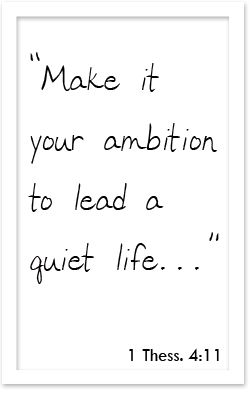Infertility Post Three: Sharing Burdens of Grief
We moved four times in the first seven years of our marriage.
Moving while going through infertility treatments had some advantages. Some days, like Hannah in the Bible, I probably looked like I was hung over from crying myself to sleep the night before! When friends inquired, I always felt reluctant to admit that I was still sad about the same thing, and that no, it wasn’t getting any better. Although I had support from long-time, long-distance friends, new communities provided some relief from the broken record effect.
[A quick note to those who find this post and don’t know me. This is part of a series about our seven years of infertility treatments. This post in particular is about understanding someone else who is going through this. I struggled deeply, but now our story is resolved. Please feel free to read the whole story (click here for an index of posts), but I don’t want anything on the blog to cause unexpected pain. My heart is with you, and I wish you the best.]
Why did I grieve so much, for so long?
On the surface, infertility doesn’t involve tangible loss. Any month, it could be resolved, and then there really wouldn’t have been any loss at all (except in cases of miscarriage).
I’m writing to some of the most compassionate people in the world – people who already understand. Please still humor me, though, by thinking about these questions:
– How many everyday conversations do you hear that revolve around children or grandchildren?
– What is your favorite thing about Christmas? Who enjoys that with you? Can you imagine a Christmas without children?
– How many daily smiles are in response to a child? How many times has a child said or done something that reminds you of simple joy on a rough day?
– How important is motherhood to you?
– How many future plans with your spouse involve children or grandchildren?
For a woman whose dreams weigh heavily on the family side rather than the career side, childlessness is a shocking change of lifestyle. The future can feel empty and lonely. The loss of dreams formerly shared with a spouse threatens to quench something in the marriage.
The unknown can be wearing, too. In many (or most) cases of infertility, closure is elusive. Each month or treatment cycle carries new hope and new disappointment. You want to get off the roller coaster one way or another, but hope dies hard.
Then there are the everyday painful experiences. I didn’t want to tell people that these things were painful. Many people dealing with infertility are bothered by similar things, though:
Smack dab the middle of our journey through infertility treatments, my husband’s 21 year old sister died in an accident. The death of a child is a grief I can’t fathom. I doubt that anyone who hasn’t experienced it could begin to fathom it. Nothing touches this loss.
I wonder what kinds of things have been painful to my in-laws. Graduations? Weddings? People complaining about wayward (but living) teens?
Did their grief trump the pain of infertility, negating it? (They never acted this way!)
Did my grief trump someone else’s “lesser” grief?
What about people who carry less recognizable disappointments, like caring for a parent with Alzheimer’s or living with a petty spouse?
How do we honor each other’s pain when the intensity and duration aren’t equal?
Is it ever helpful to compare grief?
I didn’t feel deep loss over my early miscarriages, although I was very sad about them. Some women who miscarry very early do grieve deeply, comparable to those who miscarry later. On the other hand, I’ve heard a few women describe how infertility actually was strengthening their marriages and deepening their faith. I can only figure that they were from an alien planet. How could this not rip them apart?
In spite of individual differences, people who grieve over similar losses do share many responses in common. Some types of loss are notorious for causing more damage than others, as people try to cope. It helps to be aware. It can be hard to defend ourselves, explaining that the hurdles we face are “normal” for our situations.
For example, did you know that at least 66 percent of divorced couples are childless? This is attributed to “loneliness” and, ironically, “weariness.” Although the connection to infertility is not known, it’s safe to guess that some of the childless couples around us may be extra lonely, maybe coping with marital strain, especially if they didn’t want to be childless right now.
In the end, I don’t know whether it does or doesn’t help to compare grief – maybe it helps to understand, but never to minimize.
The best thing I can figure is to listen. Listen to the broken record of unpleasant outpourings, and trust the validity of the emotions. When we accept that we might respond the same way under the same circumstances, we have a chance at lightening someone else’s load… maybe even enough that they can shoulder it a little better.
I’m remembering some questions I’ve received over the years… If a grieving friend isn’t talking, try saying, “I want to support you, but I don’t know the right things to say. I’d be grateful any time you could let me know how I can pray.” Or, “How can I pray this week?” Then just listen. No need to search for words to fix it. And then pray! It really does matter.
A friend who will walk through years of grief like this with someone is a priceless treasure.
For an index of posts covering our story, please click here.






I hardly know how to respond. I want to hit “undo” on years of conversations with childless people. But I’m glad for the chance to see inside the grief and the buttons that trigger the reminders. And to see ways to respond better next time. Thank you.
Whatever, Mom – YOU are a priceless treasure!
Debbie,
After our particular losses, I have to say that we don’t compare our grief with anyone else’s, if we can help it. Loss is loss, and the pain is real. I say amen to your mom’s comments. I wish I had known how to be more supportive of you during those years. You are a priceless treasure, too, and my son’s awareness of that reality is growing all the time, I believe. We love you.
I think this is a phenomenal post to open up other’s eyes, but also your comments on comparing grief were profound. I am thankful for your courage in writing these. Maybe someday I’ll be able to put into words my experiences too. Not there yet, but I am moved by your words.
Thank you extending grace when I was clueless, Debbie. Oh, that I will remember to be quick to listen and slow to speak! I love you.
It is never helpful to compare grief. Only to point them to the Comforter. This is an eloquent post, and I’m glad I found it. Thank you.
Anna